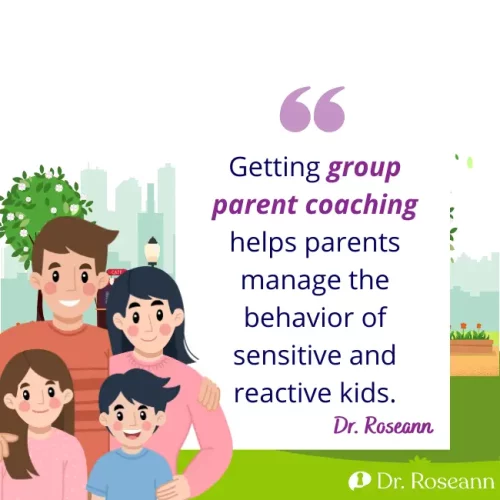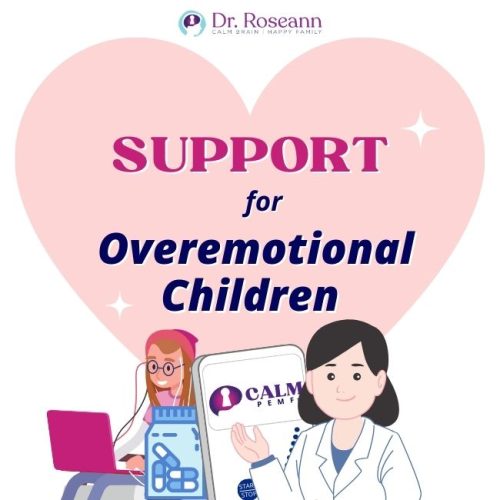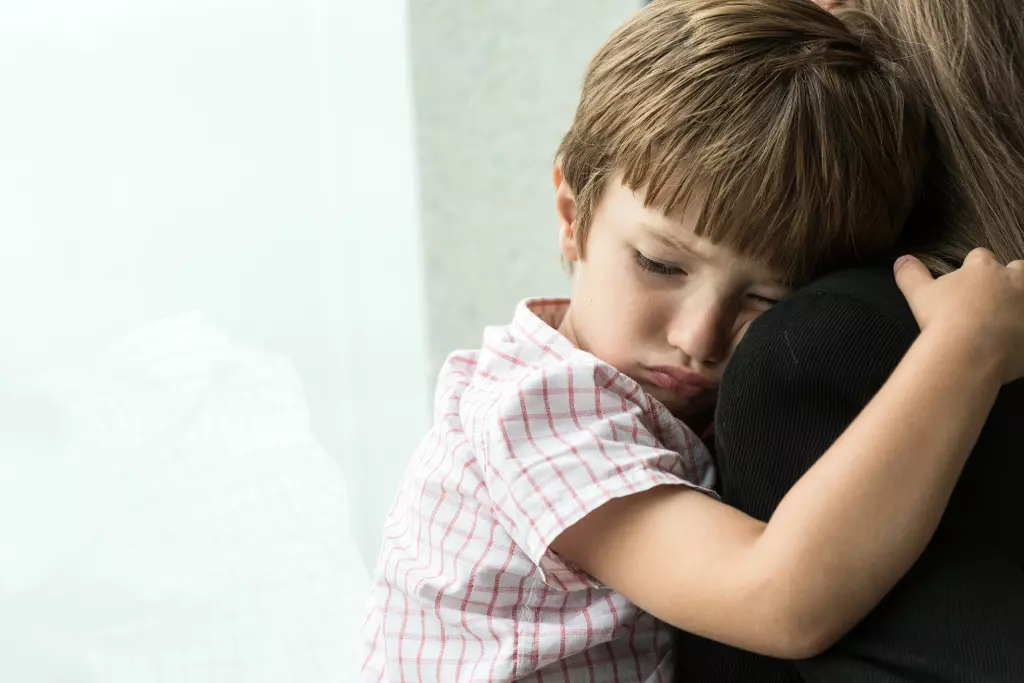Estimated reading time: 6-7 minutes
Ever feel like your child goes from calm to chaos in seconds? One tiny trigger and suddenly they’re in tears, yelling, or going quiet completely.
These intense reactions aren’t about willfulness – they’re signs that your child’s nervous system is overwhelmed and pretty much struggling to regulate.
When big emotions show up like this, it’s often a clue that deeper issues like anxiety, mood disorders, or sensory processing challenges may be at play.
The good news? With the right tools – like brain-based support, guidance from a trained professional, and a community of parents who get it – healing and progress is possible.

How Do I Recognize If My Child is Overly Emotional?
Emotional pain in children isn’t always seen—it can hide in the body and show up as sudden, intense outbursts that seem out of the blue. These reactions are often because of a dysregulated nervous system, especially in highly sensitive kids who feel everything more deeply.
Take 12-year old Lydia with several diagnoses as an example. She struggled with explosive reactions to daily stress which overwhelmed her parents until they tried neurofeedback. This helped Lydia calm her brain and regulate her emotions, transforming their once-chaotic mornings into peaceful routines.
When emotional responses become frequent and intense over time, it’s a sign that deeper support is needed.

Below are some of the common traits of highly sensitive kids. If they sound familiar, it may be a sign your child’s nervous system needs a little extra support.
1. Depression
Overly emotional children often feel moody or sad because their rich inner world clashes with an overwhelming outer one. Their deep emotional processing and sensitivity to sensory input can contribute to mood disorders.
2. Anxiety
Highly sensitive kids are more prone to anxiety due to their heightened awareness of subtle environmental changes. Their nervous system becomes easily overstimulated, leading to a persistent fight-or-flight state.
3. Oppositional Defiant Disorder
Children with ODD may seem hostile or defiant, often triggered by simple demands or unmet expectations. This behavior is frequently linked to underlying conditions like anxiety, mood disorders, or PANS/PANDAS.
4. Muscle tension, headaches, and stomach discomfort
Overly emotional kids often report headaches, body pain, and sleep disturbances caused by chronic stress. These somatic symptoms are common among children dealing with emotional overwhelm.
5. Sensitive to light, sound, and smell
Loud noises, bright lights, and strong smells can feel unbearable to highly sensitive children. Their nervous system is easily triggered by sensory input, making ordinary experiences feel overwhelming.
6. Fear of social situations, groups, and crowds
Social settings can be exhausting and stressful for emotionally sensitive children, who often fear judgment or discomfort. Avoiding these situations can deepen social anxiety and, in extreme cases, lead to selective mutism.
Overly emotional people can also be shy. One study examined sensory processing sensitivity among people with social anxiety disorder and results show that the construct is distinct from social anxiety but highly correlated with harm avoidance and agoraphobia (Hofmann & Bitran, 2007).
7. Constantly taking things personally
These children often internalize others’ feelings and assume they are responsible for everything around them. This emotional pattern can lower self-esteem and increase reactivity.
8. Unreceptive to critical feedback
Criticism feels deeply personal and painful to emotionally sensitive kids, who may react strongly even to mild comments. They may experience rejection-sensitive dysphoria, a condition many people with ADHD experience. As a result, they might engage in people-pleasing or avoid situations where feedback is possible.
9. Having empathy toward others
Empathy runs deep in these children—they physically feel others' emotions and often take on caregiving roles. Their sensitivity to injustice and suffering shapes their values and future aspirations.
10. Increasing self-awareness
Highly sensitive kids have a rich inner world and are often introspective, creative, and spiritually curious. They may be drawn to contemplative practices and artistic expression as outlets.
11. Appreciates pleasant sensations
These children enjoy and benefit from comforting smells like essential oils, textures, and soothing environments. They may gravitate toward sensory tools or rituals to self-soothe.
12. Refuses to watch violent movies or read tense fiction
Violent or emotionally intense media can be overwhelming and upsetting for sensitive kids. Even background sounds in these films may trigger emotional distress.
13. Requires a quiet, relaxed environment
Calm, predictable spaces help children feel grounded and regulated. Nature, mindfulness, and silence are essential for their emotional balance and daily functioning. Vacations may help them feel rested and refreshed, although the traveling involved may counter that effect.
What Causes a Child to Be Overly Emotional?
1. Brain Development
As children grow, their brains continue to mature, particularly the areas regulating emotions. Since amygdala develops before the prefrontal cortex, emotional reactions tend to be intense and less controlled. Over time, as their brains mature, they gain better control over their emotions (Casey et al., 2010).
2. Lack of Emotional Regulation Skills
Young children are still learning how to manage their emotions, which can result in strong reactions when overwhelmed. Teaching children calming strategies early helps build their emotional control (Gross & Thompson, 2007).
3. Environmental Stressors
Ever notice how a small change at home or a fight with a friend can send your child spiraling? A predictable and safe environment helps children process these stressors more effectively.
4. Anxiety or Sensitivity
Some kids just feel everything—loud noises, change in plans, even scratchy socks—like their level of emotion is stuck on high. Coping tools like deep breathing can reduce emotional overwhelm (Beidel et al., 2007).
5. Unmet Needs or Communication Issues
Sometimes what looks like “bad behavior” is just a tired kid who missed a snack or couldn’t find the right words. Teaching children and teens to identify and express these needs reduces frustration.
6. Temperament
Each child’s temperament affects how they react emotionally. Recognizing your child’s natural sensitivity or reactivity allows for more compassionate and tailored support.
7. Modeling and Parenting Style
Children learn emotional habits by observing adults, so how you manage your own emotions matters. Modeling calm responses and validating their feelings fosters healthy emotional development.
How Do I Support Overemotional Children?

All children and teens benefit from good emotional regulation and coping skills. The good news? There are different ways to improve your child's behavior.
- Teach Emotional Regulation: Help your child develop coping skills to manage stress and emotions.
- Focus on Stress Recovery: Behavior improves when kids learn how to bounce back from stress.
- Build Resilience Over Time: Resilience supports both brain and body health and grows with practice.
- Use Brain-Calming Tools: Tools like the CALM PEMFTM portable device, neurofeedback, and magnesium can support emotional and sensory regulation.
- Seek Professional Guidance: A qualified child psychologist can help tailor strategies for your child’s unique needs.
As a result of using these nervous system calmers, your child is more likely to have a calmer brain, regulated behavior, and improved mental health.
Going back to Lydia’s story, after several neurofeedback sessions, her mom noticed that she was calmer and could finally express why she felt upset—something she couldn’t do before. Despite consistent parenting and support, Lydia had struggled because her brain was constantly in fight, flight, or freeze mode, making it impossible for her to process or act on guidance.
It became clear that Lydia’s dysregulated nervous system had been the real roadblock, not a lack of effort or parenting skill. While her mom was grateful for the transformation, she also regretted waiting years to act—something many parents do, hoping their child will grow out of it.
Whether your child’s behaviors are developmental or clinical, we have to calm their brain and teach them the skills to manage stress and uncomfortable feelings and sensations. Good parenting can move kids forward in a positive way.
Explore our BrainBehaviorReset™ Program. Use our solution matcher or tune in to my It’s Gonna Be OK! Podcast for parents to find the right approach.
If you need more support, join my Dysregulation Solution program for easy and practical strategies to help your child self-regulate.
Parent Action Steps
FAQ's
Why is my child overly emotional?
Your child may be emotionally sensitive due to their “still developing” brain and temperament, which can make them highly reactive to everyday situations.
Why is my child constantly overreacting to situations?
Overreaction can stem from a dysregulated nervous system, where the brain is easily triggered into fight, flight, or freeze mode. Neurofeedback, calming practices, and emotional regulation strategies can help them process emotions better.
Are emotional regulation skills something my child can develop over time?
Yes, emotional regulation is a skill that can be learned and strengthened. Through consistent practice, modeling, and supportive strategies like mindfulness, your child can gradually improve their ability to manage strong emotions.
Is my child’s emotional reactivity a sign of a mental health condition?
Not necessarily, but emotional reactivity can sometimes point to underlying conditions like anxiety, ADHD, or sensory processing issues. If you’re concerned, it’s best to consult a professional for an accurate assessment.
Citation
Hofmann, S. G., & Bitran, S. (2007). Sensory-processing sensitivity in social anxiety disorder: Relationship to harm avoidance and diagnostic subtypes. Journal of Anxiety Disorders, 21(7), 944–954. https://doi.org/10.1016/j.janxdis.2006.12.003
Rao, P. A., Beidel, D. C., Turner, S. M., Ammerman, R. T., Crosby, L. E., & Sallee, F. R. (2007). Social anxiety disorder in childhood and adolescence: descriptive psychopathology. Behaviour research and therapy, 45(6), 1181–1191. https://doi.org/10.1016/j.brat.2006.07.015
Gross, J. J., & Thompson, R. A. (2007). Emotion Regulation: Conceptual Foundations. In J. J. Gross (Ed.), Handbook of Emotion Regulation (pp. 3-24). New York: Guilford Press.
Casey, B. J., & Jones, R. M. (2010). Neurobiology of the adolescent brain and behavior: implications for substance use disorders. Journal of the American Academy of Child and Adolescent Psychiatry, 49(12), 1189–1285. https://doi.org/10.1016/j.jaac.2010.08.017
Always remember… “Calm Brain, Happy Family™”
Disclaimer: This article is not intended to give health advice and it is recommended to consult with a physician before beginning any new wellness regime. *The effectiveness of diagnosis and treatment vary by patient and condition. Dr. Roseann Capanna-Hodge, LLC does not guarantee certain results.
Are you looking for SOLUTIONS for your struggling child or teen?
Dr. Roseann and her team are all about solutions, so you are in the right place!








